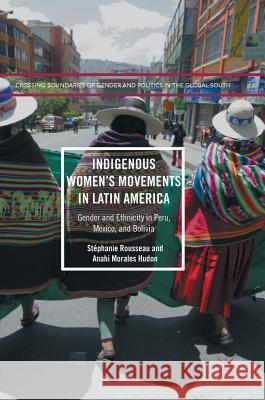Indigenous Women's Movements in Latin America: Gender and Ethnicity in Peru, Mexico, and Bolivia » książka
Indigenous Women's Movements in Latin America: Gender and Ethnicity in Peru, Mexico, and Bolivia
ISBN-13: 9781349950621 / Angielski / Twarda / 2016 / 225 str.
This book presents a comparative analysis of the organizing trajectories of indigenous women's movements in Peru, Mexico, and Bolivia. The authors' innovative research reveals how the articulation of gender and ethnicity is central to shape indigenous women's discourses. It explores the political contexts and internal dynamics of indigenous movements, to show that they created different opportunities for women to organize and voice specific demands. This, in turn, led to various forms of organizational autonomy for women involved in indigenous movements. The trajectories vary from the creation of autonomous spaces within mixed-gender organizations to the creation of independent organizations. Another pattern is that of women's organizations maintaining an affiliation to a male-dominated mixed-gender organization, or what the authors call "gender parallelism." This book illustrates how, in the last two decades, indigenous women have challenged various forms of exclusion through different strategies, transforming indigenous movements' organizations and collective identities.











